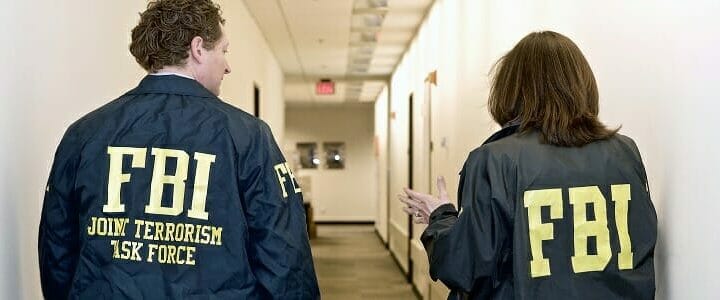It has been a good couple of years for law enforcement agencies. The money is there, the need has been pressed, and the positions are open. Nationally, everyone from the FBI to the Border Patrol to the Transportation Security Administration are hiring. On a local level, places like D.C. and Boston are looking for police and police support. Moreover, there are overseas contractor postings looking for active and retired U.S. police officers to help advise allied countries on policing practices. So who is hiring, what are they hiring for, and where will you be working? Here are some options if you are interested in a law enforcement career.
Border Patrol
Unless you’ve been living under a rock, you might have heard that the U.S. is locking down its borders. (If you have been living under a rock, your survival skills might look good on a job application.) United States Customs and Border Protection has more money than ever, and certainly has a mandate at the highest levels in Washington. Taken together, that means jobs. The sort of work available isn’t limited to the Arizona desert—though that work is in high demand. CBP needs everyone from Black Hawk pilots (the helicopters are on loan from the U.S. Army) to agricultural specialists who can help prevent the spread of crop diseases. You can find a list of jobs here. And take note that the jobs are not limited to states bordering Canada and Mexico! Virginia is by far the state most likely to have contractors hiring to help CBP. If you guessed computer work, you guessed correctly. (And if you don’t have computer skills, here is a good place to start.)
Overseas Advisers
A career in local law enforcement by definition means a job spent in a small area for a very long time. But there’s a great big world out there, and in some of those places, it’s the Wild West. They aren’t necessarily looking for lawmen and women to face down the bandits at high noon, but they are looking for people with law enforcement experience to help train local police. The number of countries hiring, and their diversity, is stunning. From the lush jungles of Guatemala to the… slightly colder Ukraine, if you have law enforcement experience, you can pretty much pick a part of the world that you’ve always wanted to see and find a job there.
Base Security
Defense contractors have have a big footprint in installation security both at home and abroad. These jobs often concern installation access, roving security, and entry control for individual buildings. If you want more excitement, you can even guard NASA’s rockets at Cape Canaveral (which is an Air Force facility). More broadly, just about every federal building, military or otherwise, has a security contingent. While this might not be the law enforcement job of your dreams—no rappelling from helicopters or chasing UFOs with Mulder and Scully – it’s a foot in the door. You’ll have a badge and a gun and if something goes very wrong, it’ll be on you to protect the innocent.
Federal Bureau of Investigation
Since the days of J. Edgar Hoover, the Federal Bureau of Investigation has been the gold standard in law enforcement. Thanks to popular culture, the first images that might come to mind when you think of the FBI are TV shows like the X-Files and Bones. But there’s something to be said even then of the Bureau’s depiction: agents of the government who look and act the part of professionals. The ClearanceJobs database is teeming with FBI jobs, and what strikes you on first glance is the sheer variety of jobs available across the country. Most postings are for special agents—the pinnacle!—but the FBI also has its own police force responsible for protecting Bureau personnel and property, and they are hiring. And if you want to help protect America without necessarily carrying a gun, they are also looking for workers to fill such positions as computer scientists, linguists, and electronics technicians.
Law Enforcement Support
This is a hard one to nail down, exactly, but the ClearanceJobs database is filled with jobs not necessarily working directly for law enforcement agencies, but working alongside them and essential to their function. The U.S. Marshals Service, for example, needs men and women to control inventory, handle records—even provide security in federal courthouses. The Department of Homeland Security needs software developers and data entry technicians and advisers to help it coordinate with other agencies. And just about every institution you can think of—Homeland Security, every branch of the military, and specialized Justice Department organizations like the International Criminal Investigative Training Assistance Program—need instructors, from classroom training in cyber security to range training with firearms. If you have a clearance or clearance eligibility and want a job in law enforcement, there is no limit to where your ambitions might take you.




